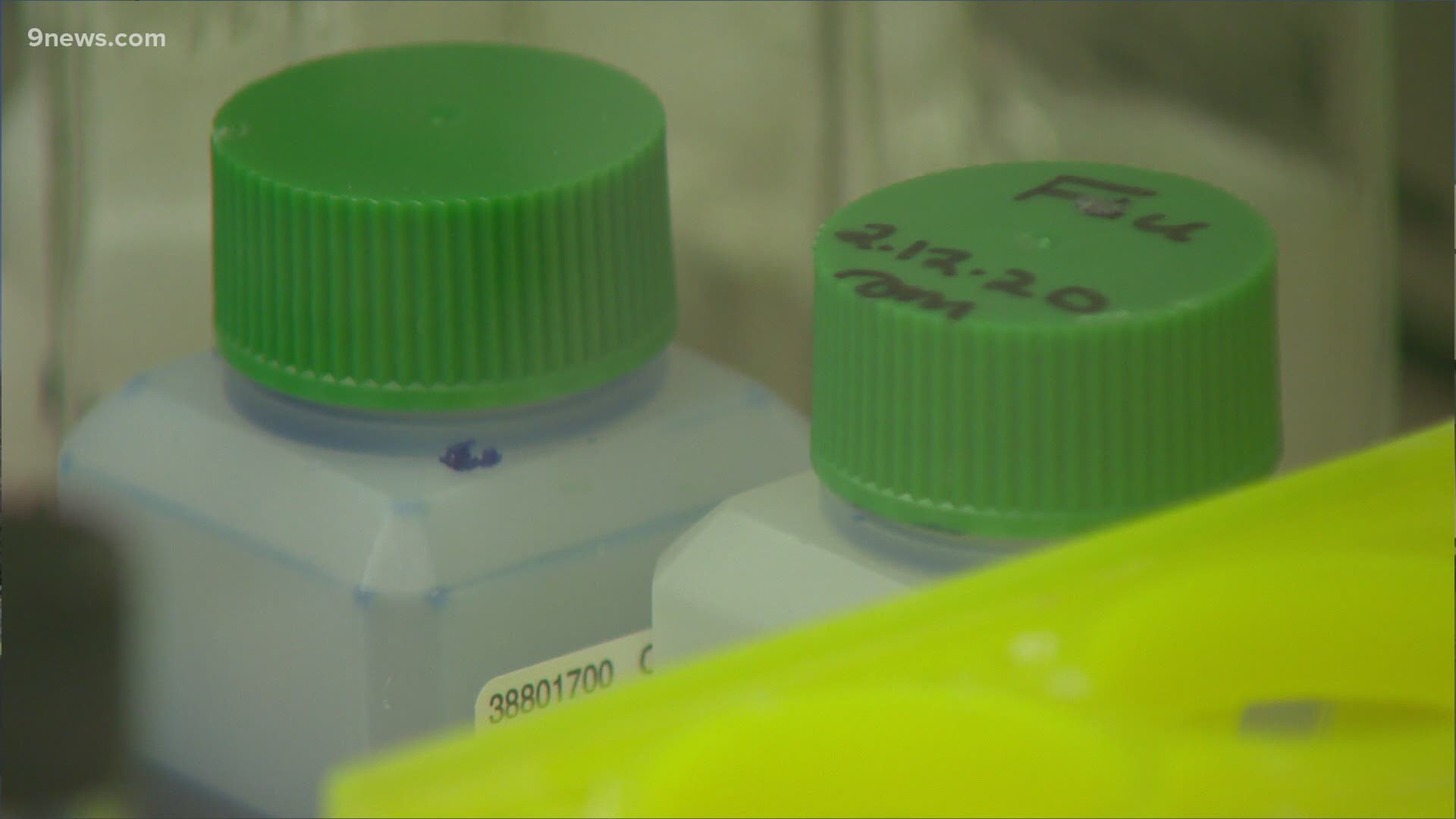COLORADO, USA — As vaccines help us get closer to the end of the pandemic, health experts continue to monitor COVID-19 variants.
Colorado was the first state in the country to report a case of the B.1.1.7 variant first detected in the United Kingdom.
The Colorado Department of Public Health & Environment (CDPHE) is also investigating several cases of the variant initially detected in California: B.1.427/B.1.429. There are currently 114 confirmed variant cases and 72 under investigation in the state, according to the state's dashboard. In an email to 9News, CDPHE said:
"The state lab screens all of the positive tests it analyzes for variants, and screens batches of positive tests from private labs. Eventually, the lab plans to screen 5% of all positive tests in Colorado for the variant. Right now, it is screening about 3%," CDPHE said.
9Health Medical Expert Dr. Payal Kohli broke down what we know about COVID-19 variants, and what it means for our community:
"Remember, variants are essentially offshoots of the parent virus, so essentially what’s happened over the last year of coronavirus is that every time the virus divides, it can accumulate mutations," said Kohli. "The variants definitely spread more efficiently. Some of them cause more aggressive disease and because of that we really need to keep our eye on them because if we don’t check them, they quickly become the dominant strain and they sort of take over. "
Do you think the state is doing enough testing for variants?
Dr. Kohli: Given the number of variants that are circulating nationwide and what we’ve seen, we really do need to step that up so that we’re testing many more samples, and we can really start to identify these variants before they become dominant. If we’re only testing a little piece of the pie, we actually have to wait until they become dominant before they start showing up in that small piece of the pie. So, I do believe that more genotyping needs to be a priority.
What is genotyping?
Kohli: It's really looking at that genetic material and comparing it against the genetic material of the variants and saying is this the same as this variant or is this the parent virus, so really looking and doing analysis on the nucleotides and the amino acids and all that stuff.
What do we know about the variants as it relates to vaccines?
Kohli: The Moderna and Pfizer vaccine both appear to be clinically effective against the variants, however their efficacy is substantially reduced.
With respect to the Johnson and Johnson vaccine, the data has been encouraging with the variant that was first detected in South Africa, because part of the trial was done in South Africa where greater than 95% of the cases were of the variant. They had an efficacy just above 57%.
Does the quarantine time period change if someone comes into contact with another person who has a confirmed case of a COVID-19 variant?
Kohli: Really the quarantine period with these new variants doesn’t particularly change. If anything, because they’re a little more aggressive, they can potentially manifest themselves a little bit earlier. The CDC said you have to quarantine for about 10 days if you have a negative test, with no testing at all you still want to stick to that 14 days.
What does change with the new variant because they spread more efficiently is you have to minimize your time indoors. If you’re indoors with somebody who has one of these new variants for less period of time or in closer contact with them, or what have you as compared to the original virus, it can spread a lot more effectively.
SUGGESTED VIDEOS: COVID-19 Coronavirus

